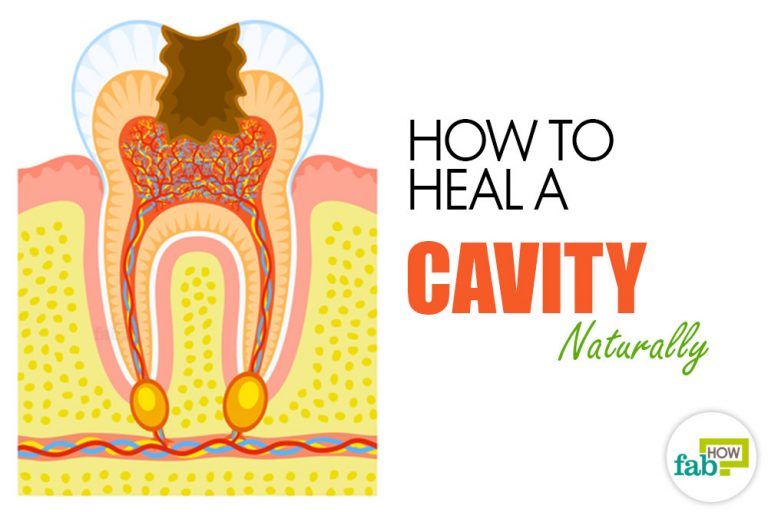
One of the most common oral health problems, dental cavities, also known as caries, refers to a condition in which tooth decay causes holes in the teeth. This decay is usually a result of a bacterial infection that leads to demineralization and destruction of the hard tissues in the teeth.
Understanding the basics of a cavity will help get rid of cavities and heal tooth decay naturally.

Common causes of cavities include:
Poor oral hygieneFoods that cling to your teeth for a long timeFrequent snacking or sipping beveragesLack of fluoride Dry Mouth Worn fillings or dental devicesEating disorders like anorexia and bulimia
The major symptoms of cavities include toothaches, tooth sensitivity, mild to sharp pain while eating or drinking, pits or holes in the infected tooth, and black/brown/white stains on the surface of the affected tooth.
If not treated timely and properly, a cavity may lead to a severe toothache, infection or even loss of the tooth.
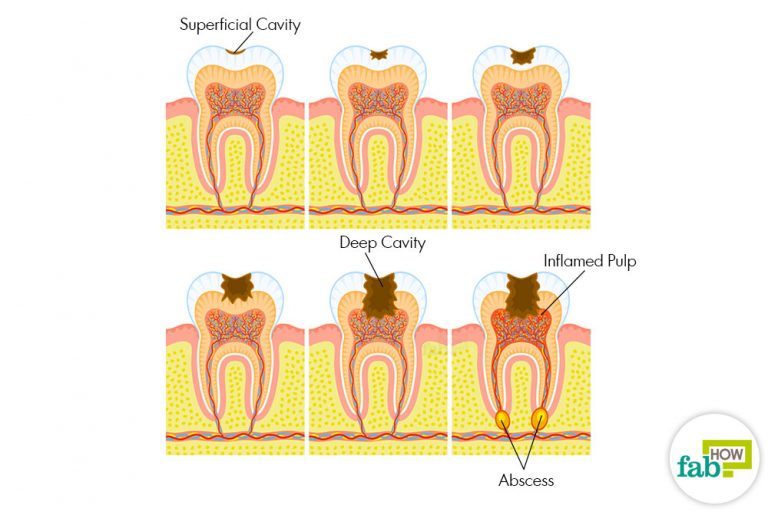
Dental science has convinced us that the only way to deal with the problem is drilling a bigger hole and filling the cavity, and in certain cases, even a root canal. But there are still several holistic ways to get rid of cavities without incurring those hefty costs for fillings.
The first step toward preventing cavities and stopping a cavity from getting worse is to practice proper oral hygiene and take good care of your teeth. At the same time, there are some natural remedies that can help provide relief and cure cavities.
Here are few natural methods to help you heal a cavity naturally without the dentist’s drill.
Method 1: Use Oil Pulling
Oil pulling is one of the most effective treatments to cure a cavity, as it helps clean the mouth of harmful bacteria that leads to different dental problems. An oral detoxification technique, oil pulling draws toxins and bacteria out of your mouth, while also strengthening your tooth enamel with essential nutrients.
Coconut oil is one amazing ingredient for the oil pulling process. A good fat loaded with powerful antiseptic, antibacterial and antifungal properties, coconut oil kills off bad bacteria in the mouth, thus providing relief from bad breath, bleeding gums and cavities.
Single-Step Treatment: Swish coconut oil in the mouth for 10 minutes

Put 1 tablespoon of coconut oil in your mouth.Swish it around for 20 minutes before spitting it out. Do not gargle or swallow it.Rinse your mouth out with lukewarm water.Brush your teeth normally.
Repeat twice each day, soon after waking up in the morning (on an empty stomach) and before bedtime.
Method 2: Use Garlic
Garlic contains incredible antibacterial and antibiotic properties that stimulate the healing process for cavities, while also relieving pain and discomfort.
Things you’ll need:
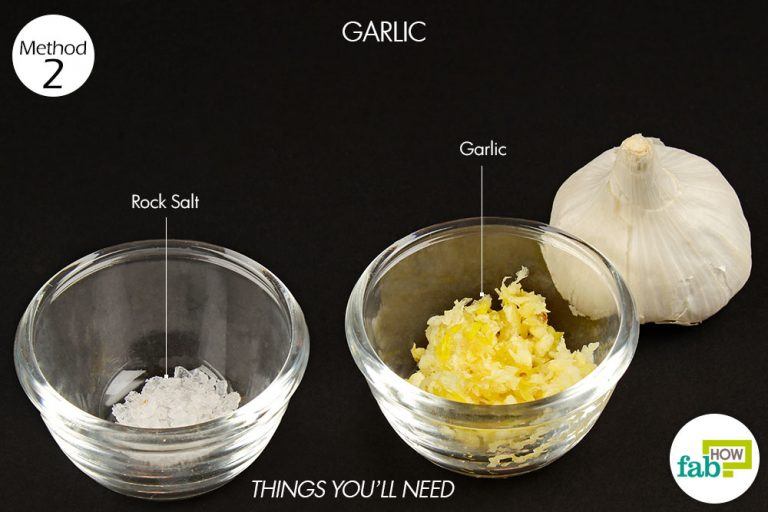
Garlic (peeled and crushed) (relieves pain and discomfort) – 4 clovesRock salt – ¼ teaspoon
Step 1. Add rock salt to crushed garlic

Put 4 crushed garlic cloves in a bowl.Add ¼ teaspoon of rock salt to the garlic.
Step 2. Mix together to form a paste and apply on the affected tooth
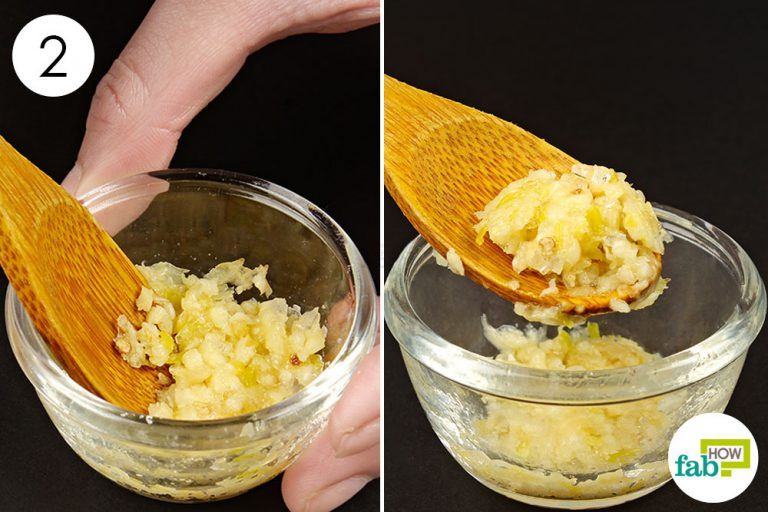
Mix the ingredients thoroughly to form a paste.Apply the paste on the affected tooth.Leave it undisturbed for 10 to 15 minutes.Rinse your mouth with a mouthwash.
Repeat the process 2 times each day for 15 days to heal tooth decay and get rid of a cavity.
Method 3: Use Salt Water
Salt possesses antibacterial, antiseptic and anti-inflammatory properties that help ease pain, reduce inflammation and draw out infection from the mouth.
Warm water soothes pain and discomfort in the mouth.
Step 1. Add salt to water

Fill a glass with warm water.Add ½ teaspoon of salt to the water.
Step 2. Stir well and use

Stir well until the salt completely dissolves in the water.Swish some of the solution around in your mouth for 2 minutes, focusing on the affected tooth.Use the solution to rinse your mouth every 3 to 4 hours.
Repeat the process for 4 to 5 days to observe a considerable amount of reduction in your cavity.
Method 4: Use Clove Oil
Clove oil is loaded with antibacterial, anti-inflammatory and analgesic properties that help reduce the intensity of the toothache, while also restricting further spreading of the cavity.
Sesame oil safeguards the oral cavity walls from bacteria, while also attacking the germs present in saliva and plaque.
Things you’ll need:

Clove oil (restricts further spreading of cavity) – 3 or 4 dropsSesame oil (protects oral cavity walls from bacteria) – 1 teaspoon
Step 1. Mix clove oil and sesame oil
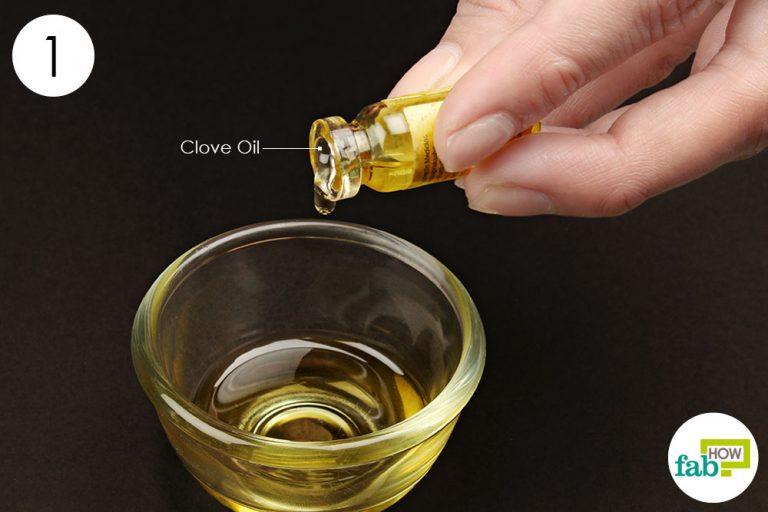
Take 1 teaspoon of sesame oil in a bowl.Add 3 or 4 drops of clove oil and mix well.
Step 2. Apply the oil on the affected tooth
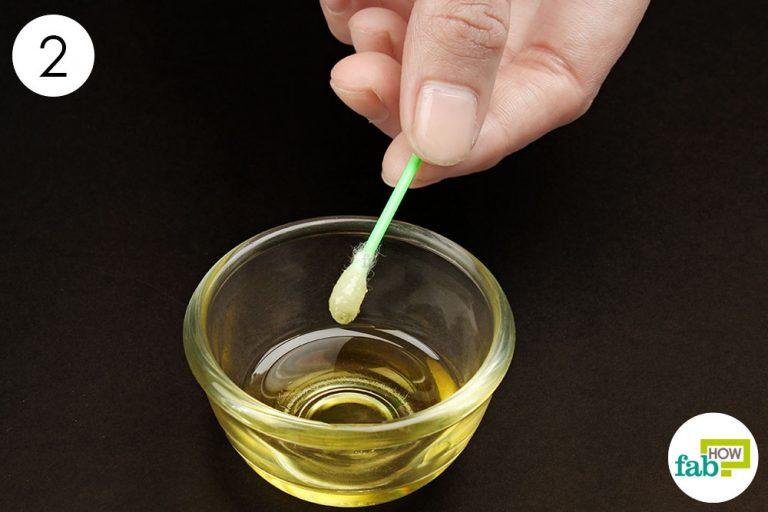
Dip a cotton swab in the oil blend and dab it on the affected tooth.
Repeat the process each night before going to bed and observe amazing results in a week.
Alternatively, swish some clove oil in your mouth and spit it out once it becomes foamy. This helps to pull out infection from the tooth and relieves pain instantly.
Method 5: Use DIY Toothpaste
DIY toothpaste is probably the first thing you must do in the way of getting rid of cavities.
Commercial toothpastes (including those that claim to be natural) are loaded with a number of harmful toxins and minerals that should strictly be avoided while dealing with cavities. Some of the basic ingredients used in commercial toothpastes include triclosan, glycerin, artificial colors, dyes and sweeteners that are extremely harmful for the health of the mouth and result in numerous dental troubles.
So, the best way is to refrain from the use of such toothpastes and go natural instead to make your own toothpaste that is free from harmful chemicals and contributes to the health and strength of your teeth and gums.
Here is a simple and quick recipe for DIY toothpaste.
# DIY Toothpaste
Coconut oil contains antiseptic, antibacterial, antimicrobial and healing properties that help reduce cavity-causing bacteria in the mouth and thus fights off infections.
While baking soda is alkaline in nature and helps neutralize acids in the mouth, sea salt adds extra minerals to the toothpaste.
Things you’ll need:

Coconut oil (contains antiseptic properties) – 2 tablespoonsBaking soda (helps neutralize acids in the mouth) – 1 tablespoonSea salt (natural cleanser) – 1 tablespoon
Step 1. Mix the ingredients to form a paste
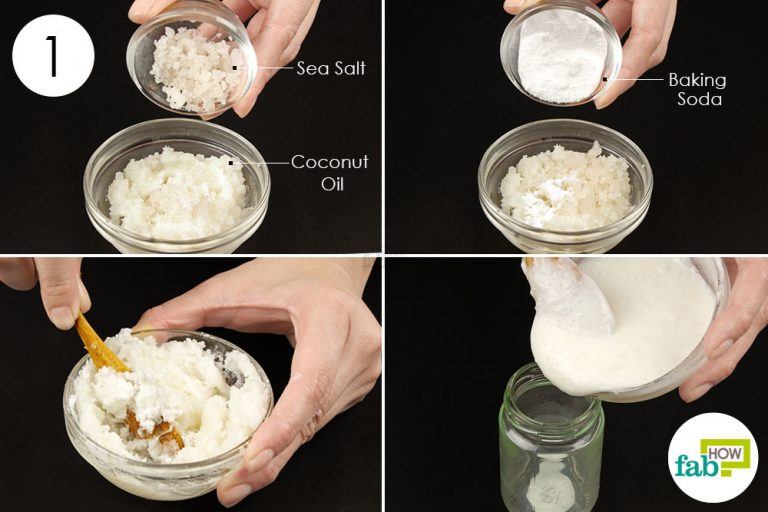
Take 2 tablespoons of coconut oil in a bowl.Add 1 tablespoon each of sea salt and baking soda to the oil.Mix the ingredients together and store it in a jar.
Step 2. Use your DIY toothpaste regularly
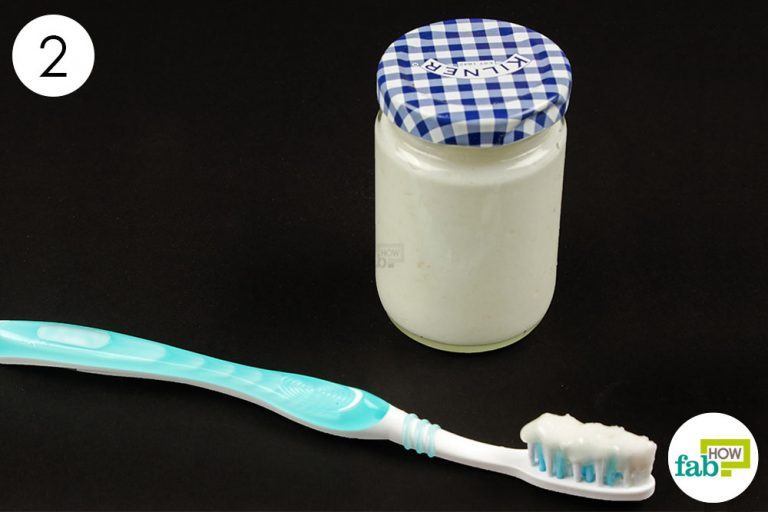
Use this instead of your regular toothpaste to heal tooth decay.Brush your teeth twice a day with it.
Tips
Always use an antibacterial mouthwash to rinse your mouth. This will kill harmful bacteria in the mouth, prevent cavities and gum diseases, and remove plaque.After every snack or meal, rinse your mouth with warm water.Avoid excess intake of sugary foods and drinks, as they can create plaque.Consume green tea and black tea as they help reduce plaque formation, while also reducing the growth of bacteria in the mouth.Chew sugar-free gum to stimulate the production of saliva and make your teeth strong.Drink 8 to 10 glasses of water each day. This helps clear away bacteria and improves the production of saliva.Drinking cranberry juice is another effective way of improving oral hygiene and eliminating cavities.Cheese is an excellent choice to get rid of cavities, as it is loaded with calcium and phosphate that support the health of your teeth.Consume foods with enough calcium, phosphorus, magnesium and other key minerals, along with those rich in vitamins A, D, E and K.Eat high-fiber foods to help increase the production of saliva in your mouth.
Reference:
http://www.webmd.com/oral-health/news/20050223/fixing-cavities-without-dentists-drill
Summary of How to Heal a Cavity Naturally

Download this infographic.
Share This Infographic On Your Site!
Source: Fab How
As a dentist I can not see anything scientific about this article. As a blatant example, the picture of a tooth with "a cavity" is actually a picture of a tooth with a silver filling (amalgam filling).
ReplyDelete